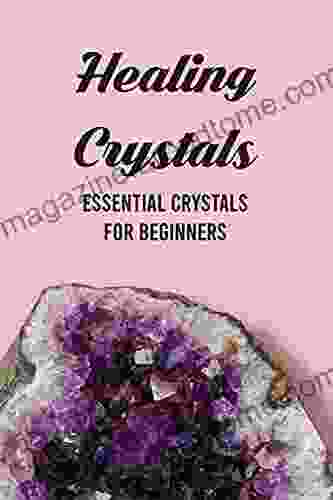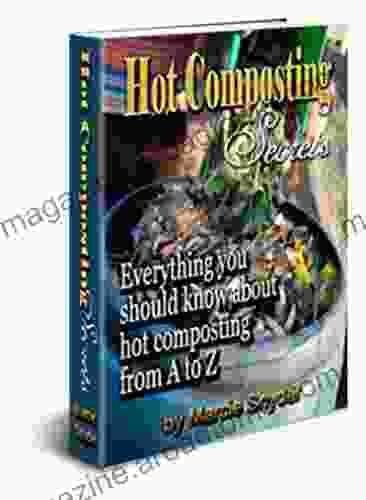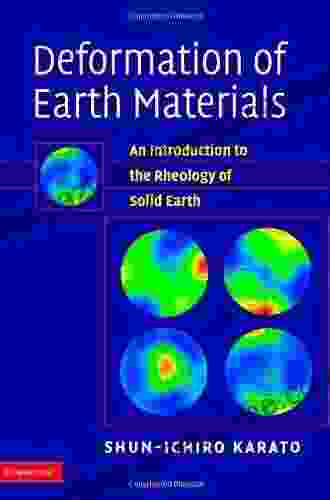Hot Composting Secrets: The Ultimate Guide to Transforming Your Garden with Nutrient-Rich Soil

4 out of 5
| Language | : | English |
| File size | : | 153 KB |
| Text-to-Speech | : | Enabled |
| Screen Reader | : | Supported |
| Enhanced typesetting | : | Enabled |
| Print length | : | 35 pages |
| Lending | : | Enabled |
Composting, the natural process of breaking down organic matter, is a gardener's secret weapon for creating nutrient-rich soil. While traditional composting methods can take months or even years, hot composting accelerates this process dramatically, producing finished compost in as little as a few weeks.
In this comprehensive guide, we unveil the secrets of hot composting, empowering you to transform your garden into a thriving oasis. From understanding the science behind composting to practical tips and troubleshooting solutions, we cover everything you need to know to create the perfect compost for your plants.
Unveiling the Science of Hot Composting
Hot composting is a controlled process that utilizes the heat generated by microbial activity to rapidly break down organic matter. As the compost pile reaches temperatures between 130°F to 150°F (54°C to 66°C),beneficial bacteria and fungi flourish, breaking down the organic matter into smaller molecules that plants can easily absorb.
The key to successful hot composting lies in maintaining an optimal balance of moisture, oxygen, and carbon-rich and nitrogen-rich materials. These components work together to create the ideal environment for the microbes responsible for decomposition.
Building the Perfect Hot Compost Pile
1. Choose the Right Ingredients
The ideal hot compost pile consists of a mix of carbon-rich materials (browns) and nitrogen-rich materials (greens). Browns provide structure and absorb moisture, while greens provide the nitrogen necessary for microbial activity.
Carbon-rich materials (browns):
- Dry leaves
- Straw
- Wood chips
- Sawdust
- Cardboard
Nitrogen-rich materials (greens):
- Grass clippings
- Fruit and vegetable scraps
- Coffee grounds
- Tea bags
- Manure
2. Layer and Mix the Ingredients
Start by layering the browns and greens in the compost pile, alternating between layers. Aim for a ratio of 2:1 (browns:greens) by volume. As you build the pile, mix the ingredients thoroughly to ensure even decomposition.
3. Add Water and Aerate
The compost pile should be moist but not soggy. Add water as needed, ensuring that all the materials are evenly moistened. Aeration is also crucial for providing oxygen to the microbes. Use a pitchfork or aerator to turn and mix the pile every few days.
Monitoring and Troubleshooting Your Hot Compost Pile
Monitoring the temperature of your compost pile is essential for ensuring optimal decomposition. Use a compost thermometer to track the temperature, aiming for a consistent range between 130°F to 150°F (54°C to 66°C).
If the temperature drops below 130°F (54°C),add more nitrogen-rich materials and aerate the pile to encourage microbial activity. If the temperature exceeds 150°F (66°C),add more carbon-rich materials and reduce aeration to slow down the decomposition process.
Troubleshooting common challenges can help you maintain a healthy hot compost pile:
- Slow Decomposition: Ensure proper moisture, oxygen, and nutrient balance. Adjust the ratio of browns to greens or increase aeration.
- Bad Odors: Overwatering or lack of aeration can lead to anaerobic conditions. Add more carbon-rich materials and aerate frequently.
- Pests: Keep the compost pile covered and avoid adding meat or dairy products, which can attract pests.
- Unfinished Compost: If the compost is not breaking down completely, extend the decomposition time or increase aeration.
Harvesting and Using Your Hot Compost
Once your hot compost has reached a dark, crumbly texture and a sweet, earthy smell, it is ready to be harvested. Use it to amend your garden soil, add it to planting holes, or create nutrient-rich potting mixes.
Hot compost is a valuable resource for gardeners, providing a natural and sustainable way to improve soil health and plant growth. By following the secrets revealed in this guide, you can unlock the transformative power of hot composting and create the perfect compost for your garden.
4 out of 5
| Language | : | English |
| File size | : | 153 KB |
| Text-to-Speech | : | Enabled |
| Screen Reader | : | Supported |
| Enhanced typesetting | : | Enabled |
| Print length | : | 35 pages |
| Lending | : | Enabled |
Do you want to contribute by writing guest posts on this blog?
Please contact us and send us a resume of previous articles that you have written.
 Book
Book Novel
Novel Page
Page Chapter
Chapter Text
Text Story
Story Genre
Genre Reader
Reader Library
Library Paperback
Paperback E-book
E-book Magazine
Magazine Newspaper
Newspaper Paragraph
Paragraph Sentence
Sentence Bookmark
Bookmark Shelf
Shelf Glossary
Glossary Bibliography
Bibliography Foreword
Foreword Preface
Preface Synopsis
Synopsis Annotation
Annotation Footnote
Footnote Manuscript
Manuscript Scroll
Scroll Codex
Codex Tome
Tome Bestseller
Bestseller Classics
Classics Library card
Library card Narrative
Narrative Biography
Biography Autobiography
Autobiography Memoir
Memoir Reference
Reference Encyclopedia
Encyclopedia Marc David
Marc David Ken Phillips
Ken Phillips Ken Yeang
Ken Yeang Tracy Carr
Tracy Carr Keith Coleman
Keith Coleman Lewis Morris
Lewis Morris Kent Beck
Kent Beck Katell Berthelot
Katell Berthelot Malcolm Barnes
Malcolm Barnes Keil Hubert
Keil Hubert Liping Yu
Liping Yu Keri Day
Keri Day Mark Summerfield
Mark Summerfield Marcus J Borg
Marcus J Borg Keith Hatschek
Keith Hatschek Kathy Rausch
Kathy Rausch Kean Hin Ooi
Kean Hin Ooi Kai M Jordan
Kai M Jordan Kevin Yank
Kevin Yank Mark Clark
Mark Clark
Light bulbAdvertise smarter! Our strategic ad space ensures maximum exposure. Reserve your spot today!
 Chadwick PowellFollow ·13.1k
Chadwick PowellFollow ·13.1k Warren BellFollow ·18.6k
Warren BellFollow ·18.6k Stanley BellFollow ·6.1k
Stanley BellFollow ·6.1k Spencer PowellFollow ·12.5k
Spencer PowellFollow ·12.5k Richard WrightFollow ·13.2k
Richard WrightFollow ·13.2k Keith CoxFollow ·9.8k
Keith CoxFollow ·9.8k Ronald SimmonsFollow ·11.9k
Ronald SimmonsFollow ·11.9k Bruce SnyderFollow ·8.6k
Bruce SnyderFollow ·8.6k

 Francis Turner
Francis TurnerLearn to Make the Perfect Tapas Dishes Through the...
If you're looking to...

 Victor Turner
Victor TurnerUnlock the Secrets of Publishing Law: A Comprehensive...
Embark on a literary journey where the...

 Casey Bell
Casey BellHealing Crystals: Essential Crystals for Beginners
Unveiling the Mystical...

 Nick Turner
Nick TurnerOne Hundred Years of Fire Insurance: A History of...
Chapter 1: The...
4 out of 5
| Language | : | English |
| File size | : | 153 KB |
| Text-to-Speech | : | Enabled |
| Screen Reader | : | Supported |
| Enhanced typesetting | : | Enabled |
| Print length | : | 35 pages |
| Lending | : | Enabled |
















